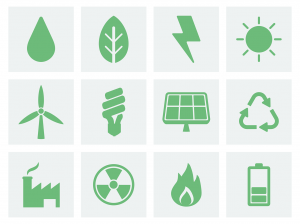 The United Nations has laid down its plan for a policy on sustainable energy at an international level. However, is their action and lead sufficient? What will it entail for nations across the globe to follow their lead? Will bytte strømleverandør or switching power suppliers to renewable ones be one of the solutions?
The United Nations has laid down its plan for a policy on sustainable energy at an international level. However, is their action and lead sufficient? What will it entail for nations across the globe to follow their lead? Will bytte strømleverandør or switching power suppliers to renewable ones be one of the solutions?
Forming and channeling incentives to take part in and conform to the international regulation is critical if the plan to lessen worldwide carbon emissions that is energy-based is to be realized. Additionally, economic theory could aid law-makers to center their attention on what is most necessary so as to make it happen.
UN’s Initiative For Sustainable Energy For All
The SE4ALL initiative of the United Nations or Sustainable Energy For All has suggested a worldwide renewable energy goal of 30% by 2030. The initiative has highlighted its significance by proclaiming the years 2014–2024 as the Decade of Sustainable Energy for All. In conjecture, the target of the SE4ALL will be attained predominantly by means of domestic acts, which has already started.
Of the 118 nations, Australia is one with a target for domestic renewable energy. It was recommended by the Australian Climate Change Authority to maintain the present Renewable Energy Targets to offer a level of market certitude as well as strengthen incentives for investments in renewable energy.
On the contrary, not all 118 goals for renewable energy are the same. The efficiency, strictness, compliance level and domestic implementation will differ among nations. Therefore, their combined effectiveness at cutting down the release of greenhouse gas, in keeping with the immediate need for worldwide energy de-carbonization, is possible to be below optimum and may not attain the SE4ALL renewable energy target. Reaching the renewable energy goal of the SE4ALL will necessitate unparalleled political, financial as well as technological collaboration and synchronization by the the government, corporate and civil society from the national, regional to international levels. The international law could play a key role in delivering the modalities, incentives and procedure for effective and operational global support, collaboration, and cooperation.
Scarcity Of International Regulation For Renewable Energy
There is scarcity of profound and binding international regulations of renewable energy. For instance, the system of UN climate change doesn’t make obligations that are enforceable to utilize or raise the share of domestic or global renewable energy. In history, matters for national sovereignty and policy for energy security have instigated pervasive abhorrence to international regulation. These issues have also produced a set of mostly negative versions of what economists term as “problems of collective action”.
Economic theories or philosophies of human behavior forecast that in particular situations individuals (and, by representation, nations or countries) will have difficulty cooperating since the approach that attends to every individual best is the self-centered strategy. Oddly enough, individuals would be at happier and at an advantage if they can look for a way to have faith in each other and work together.
